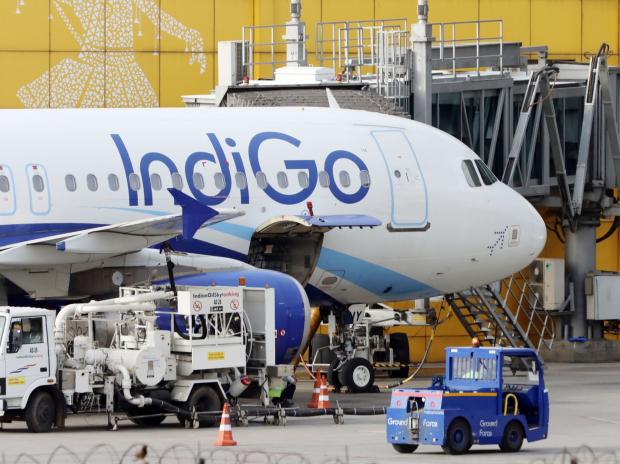IndiGo Flies Back In Green, Q3 Net Soars 1,000% To A Record Rs 1,422 Cr

InterGlobe Aviation, which operates the country's largest airline IndiGo, swung to a record Rs 1,422 crore net profit in Q3FY23, after three consecutive loss-making quarters. For the same period last year, the airline posted a net profit of Rs 129 crore.
The airline’s best quarterly profit came on the back of 60.7 per cent year-on-year (YoY) growth in revenue from operations, which stood at Rs 14,933 crore, driven by high passenger loads and strong yield.
Bloomberg consensus estimates put the airline’s adjusted revenue and adjusted net profit at Rs 14,198 crore and Rs 1,274 crore, respectively.
IndiGo’s passenger load factor rose to 85.1 per cent (up from 79.7 per cent) and the yield rose nearly 22 per cent to Rs 5.38 on a YoY basis. While the yield is likely to have softened in the fourth quarter due to seasonality, it continues to be higher than that during the pre-Covid period.
IndiGo added 22 aircraft in the quarter-ended December 31 and has guided for capacity growth in “north of mid-teens” in FY24. With a free-cash component of over Rs 10,000 crore in its balance sheet, the airline is planning investments in digitisation to support its growth ambition.
Overall, revenue stood at Rs 15,410 crore in Q3FY23 which is also its highest-ever revenue in a single quarter. This included other income of Rs 477 crore that grew 2.5x on a YoY basis due to compensation and credits from aircraft original equipment manufacturers.
Total expenses rose nearly 50 per cent YoY to Rs 13,986 crore in Q3, driven by higher fuel costs and a weaker rupee. On a sequential basis though, fuel expenses declined due to a fall in aviation turbine price.

IndiGo is currently operating over 1,700 daily flights to 97 destinations. Around 23 per cent of its capacity is being deployed on international routes and on overall basis, it is higher than pre-Covid time.
The airline’s Chief Executive Officer Pieter Elbers said international capacity would move up to m30 per cent in FY24 and indicated plans to start service to Jakarta and Nairobi. The airline on Wednesday began a wet lease operation on the Delhi-Istanbul route with a 400-seater Boeing 777 aircraft from Turkish Airlines. This would be replaced by a 531-seater aircraft, bringing more capacity and passenger traffic. On the domestic front, it is adding two new destinations -- Dharamshala and Nashik -- by March.
Asked about competition and consolidation in the Indian market following the proposed merger of Tata group airlines, Elbers said that IndiGo would continue to focus on its core strengths of providing hassle-free service at affordable price, invest in digitisation, and grow international presence. “We focus on our strengths and we should be able to deal with competition,” he added.
Stablecoin The Future Of Currency?
The payments system is undergoing a quiet but consequential shift. What was once the exclusive preserve of central banks... Read more
BoE Loosens Capital Rules
The Bank of England has taken a significant step towards easing post-crisis regulation by lowering its estimate of the c... Read more
Monzo Looks For US Banking License
Monzo is preparing a renewed push to secure a US banking licence, four years after abandoning its first attempt when tal... Read more
Crypto Firms Push Into US Banking
America’s cryptocurrency companies are scrambling to secure a foothold in the country’s traditional banking system, ... Read more
Parallel Banking: Stablecoins Are Now Global
Parallel Banking: How Stablecoins Are Building a New Global Payments SystemStablecoins—digital currencies pegged to tr... Read more
JPMorgan Deploys AI Chatbot To Revolutionize Research And Productivity
JPMorgan has deployed an AI-based research analyst chatbot to enhance productivity among its workforce, with approximate... Read more

